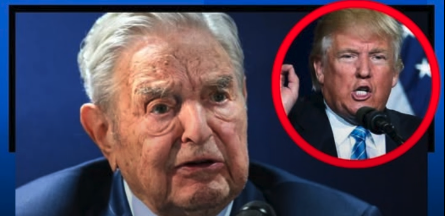Authorities Raid Soros-Linked Organizations in India Over $3 Billion Foreign Funding Scandal
In a sweeping operation that has captured global attention, India’s Enforcement Directorate (ED) on Thursday raided eight locations linked to billionaire financier George Soros’ Open Society Foundations (OSF) and its affiliated investment arm, the Soros Economic Development Fund (SEDF). The raids were conducted under the Foreign Exchange Management Act (FEMA), India’s key law governing cross-border financial transactions.
Investigators allege that the Soros-backed organizations violated Indian financial regulations by channeling massive sums of foreign money—reportedly exceeding $3 billion—into Indian non-governmental organizations (NGOs) and related entities. The ED suspects the funds were funneled into the country through disguised financial routes, despite OSF and SEDF being placed under restrictions by India’s Ministry of Home Affairs as early as 2016.
According to senior officials familiar with the case, the organizations allegedly used complex financial structures to conceal the true nature of their transactions. “They used Foreign Direct Investment (FDI) as a cover,” one enforcement official told local media. “This allowed them to support various agendas indirectly through hidden or shadow donations.”
Documents seized during the raids reportedly detail how funds were reclassified as FDI inflows, consultancy fees, or philanthropic investments to bypass regulatory scrutiny. Authorities believe these practices were designed to mask the movement of money and avoid detection by India’s financial watchdogs.
While the Open Society Foundations publicly state that their mission is to promote democracy, transparency, and human rights around the world, Indian officials have long expressed concern about the organization’s influence within the country. They argue that large, unmonitored foreign donations—especially from entities with political or ideological leanings—pose risks to national sovereignty and policymaking.
“The issue isn’t just the money,” said one senior government source. “It’s the intent behind how that money is used and whether it’s being deployed to influence civil society or domestic politics under the guise of philanthropy.”
The ED’s investigation is part of a broader campaign by Prime Minister Narendra Modi’s government to tighten oversight of foreign-funded NGOs operating in India. Over the past several years, the government has suspended or revoked the licenses of hundreds of organizations accused of violating the Foreign Contribution Regulation Act (FCRA) and other financial laws.
No arrests have been made in connection with the latest raids, but officials say the probe is ongoing. Forensic teams are reportedly reviewing a trove of digital records, communications, and financial documents seized from the premises. Additional legal actions are expected depending on what investigators uncover.
The Open Society Foundations have not yet released a detailed statement regarding the raids, but a spokesperson previously dismissed similar allegations as politically motivated attempts to suppress independent voices in India.
Still, Thursday’s enforcement action represents one of the most high-profile cases of its kind in recent years—one that could have far-reaching implications for how international NGOs and philanthropic organizations operate within India’s increasingly stringent financial and regulatory environment.
Analysts say the outcome of this investigation may determine the future of foreign funding in India’s non-profit sector and set a precedent for how the government handles allegations of financial impropriety tied to politically influential global networks.

